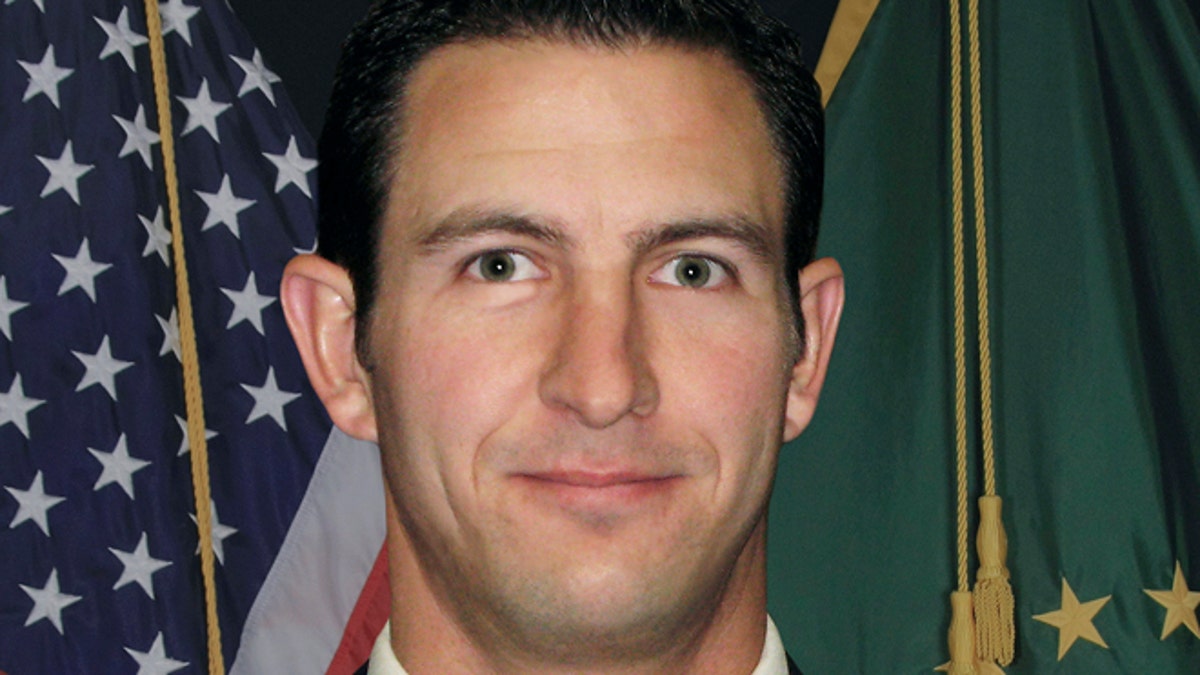
This undated photo provided by U.S. Customs and Border Protection shows slain Border Patrol agent Nicolas Ivie. (AP)
PHOENIX – Three U.S. Border Patrol agents responding to an alarm from an underground sensor were apparently in radio contact as they approached from opposite directions before opening fire on each other in the Arizona desert, leaving one agent dead, according to a sheriff's report released Friday.
It was a clear night and the agents were on patrol separately when the call came in at about 1:30 a.m. Oct. 2 that the sensor aimed at detecting smugglers and illegal immigrants had been tripped.
Agent Nicholas Ivie, 30, approached on foot from the north. The two other agents walked in from the south when Ivie apparently opened fire, eliciting a deadly barrage of return fire from his colleagues.
Ivie was killed. Another agent was wounded. The third wasn't injured.
Questions had swirled as to whether the agents were in radio contact with each other in the rugged, hilly terrain where signals can be spotty. A communication breakdown could have led to the confusion and ensuing shootout.
However, according to the preliminary report released Friday by the Cochise County sheriff's office, which is investigating the case along with the FBI, the uninjured agent later told authorities "they were in radio communication with Agent Ivie."
"At one point she observed (Ivie) signaling them with his flashlight," according to the report.
The agent, whose name hasn't been released, told investigators "as they were walking up the trail she heard yelling and then as just why Ivie opened fire contrary to training that dictates agents should only discharge their weapons once they have identified a suspect as hostile.
"None of them should have started firing unless they were returning fire from a smuggler or whatever the perpetrator might have been," said retired Border Patrol Agent Jim Dorcy.
While it's clear something went terribly wrong, no one is publicly questioning Ivie's competency or his training. He's been described by fellow agents as an experienced law enforcement officer with six years at the Border Patrol, the kind of agent others looked up to.
U.S. Rep. Silvestre Reyes, D-Texas, a former Border Patrol sector chief in El Paso, said agents are trained for every potential scenario, but he noted "things often go contrary to plan," especially in a nighttime situation "in an area you know you might encounter bad guys."
"Your heart is racing. You're trying to identify who is where. Ideally, you're in communication with other agents, but it's not a finite situation where everything always works out," Reyes said. "That said, the job is dangerous enough when you're up against the bad guys, so you want to make sure you avoid any kind confrontation among what is commonly referred to as `friendlies,' but we just don't know what happened out there yet."

